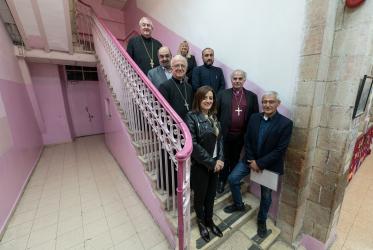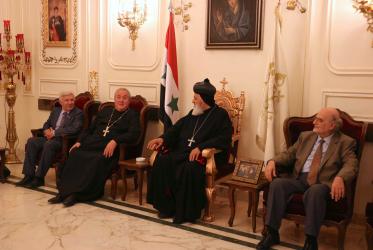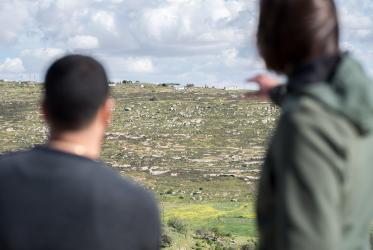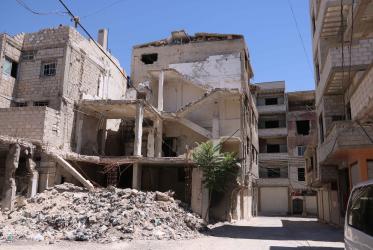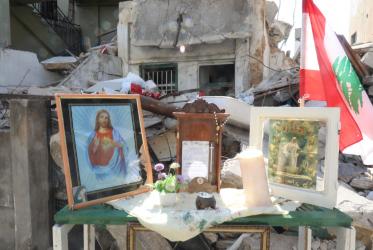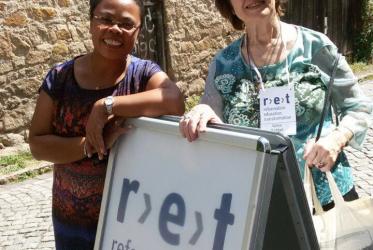Displaying 1 - 20 of 34
WCC mourns the death of Julio de Santa Ana
20 April 2023
In Lebanon, “without peace there is no justice”
21 July 2021
Thomas Kang: “Hope is what moves Christians”
21 August 2020
Women in development create space for hope in Egypt
15 June 2017
In Lebanon, refugees face hardship - but find hope
16 March 2017
‘Unprecedented times of hopelessness’ in Holy Land
11 July 2016
Peace, health and education are Gaza's future
24 May 2016


